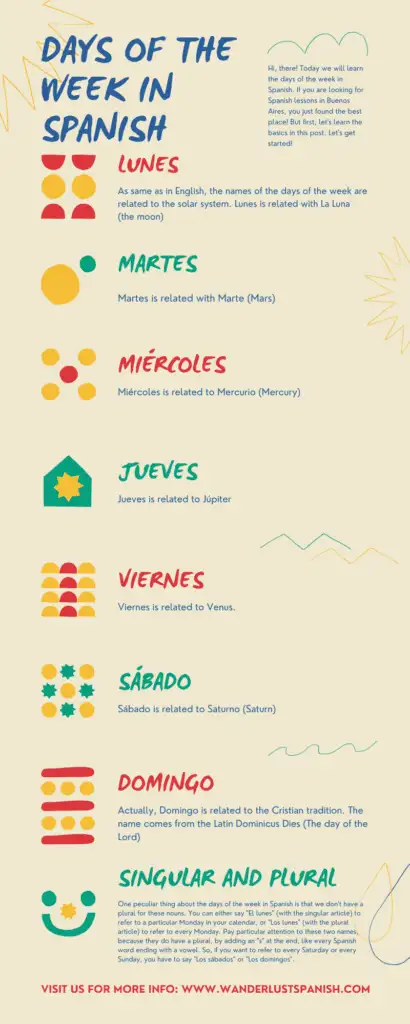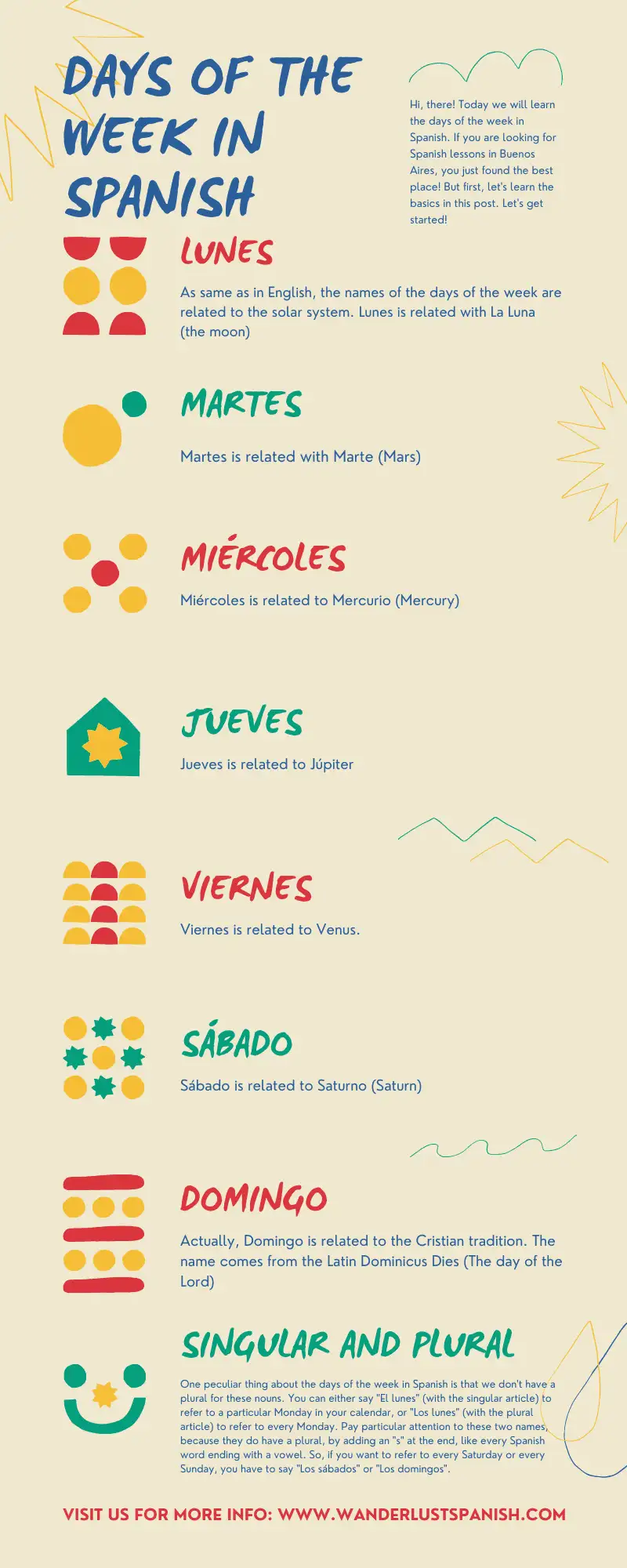Hi, there! Today we will learn the days of the week in Spanish. If you are looking for Spanish lessons in Buenos Aires, you just found the best place! But first, let’s learn the basics in this post. Let’s get started!
Working Days of the week in Spanish
Let’s start with Monday to Friday. In this table you can see the translation from English:
| Monday | Lunes |
| Tuesday | Martes |
| Wednesday | Miércoles |
| Thursday | Jueves |
| Friday | Viernes |
As same as in English, the names of the days of the week are related to the solar system. Lunes is related with La Luna (the moon), Martes is related with Marte (Mars), Miércoles is related to Mercurio (Mercury), Jueves is related to Júpiter and Viernes is related to Venus.
One peculiar thing about the days of the week in Spanish is that we don’t have a plural for these nouns. You can either say “El lunes” (with the singular article) to refer to a particular Monday in your calendar, or “Los lunes” (with the plural article) to refer to every Monday.

Weekend days
Now let’s go with the more fun days in the week: the weekend days, of course.
Let’s see the translations in the table below:
| Saturday | Sábado |
| Sunday | Domingo |
Sábado is actually related to Saturno (Saturn), but Domingo is related to the Cristian tradition. The name comes from the Latin Dominicus Dies (The day of the Lord).
Pay particular attention to these two names, because they do have a plural, by adding an “s” at the end, like every Spanish word ending with a vowel. So, if you want to refer to every Saturday or every Sunday, you have to say “Los sábados” or “Los domingos”.
Challenge: try to find the days of the week in Spanish in this song.
Would you like to learn a lot of Spanish in Buenos Aires? Contact us today and try a free class!








